ERIE, Pa. – A $412,000 grant from the National Science Foundation will fund the
purchase of an atomic force microscope at Penn State Behrend. The instrument can
measure fractions of a nanometer – which is one-billionth of a meter – and will support
research in materials and biological sciences.
The microscope, a Bruker Dimension Icon XR AFM, will be housed in the college’s
Advanced Manufacturing and Innovation Center. It will be available to all faculty
members in the School of Engineering and School of Science, and to researchers from
other nearby colleges and companies. Students also will have access to it, once they
have completed technical and safety trainings.
The instrument initially will be used to study fiber composites, polymer crystal formation
and solar-cell efficiencies. The NSF grant also will fund the purchase of a triboscope,
which uses electrostatic force to determine the properties of materials at small scales.
Both instruments will be installed near the college’s scanning electron microscope,
creating a research hub for material characterization and imaging.
“The XR AFM is state-of-the-art equipment that can determine both mechanical
properties and chemical identification measurements at nano and sub-nanometer
scales in both hard and soft materials,” said Seyed Hamid Reza Sanei, an assistant
professor of mechanical engineering and the principal investigator for the project. “This
will open the door to new collaborations and research endeavors while providing
powerful insight into material systems that already are being studied at Penn State
Behrend, including polymers, metals and composites.”
mechanical engineering, will test the efficiency of perovskite solar cells. Greg Dillon,
professor of engineering, will investigate forming techniques for PEEK composites, and
Alicyn Rhoades, an associate professor of engineering, will study the effect of cooling
rates on crystal formation.
An atomic force microscope uses a cantilever with a sharp tip to create an accurate
topographical map of the nanoscale features of a material. A laser detects any
deflection of the cantilever, measuring even the smallest variance in the material’s
surface. That data can be used to analyze a material’s mechanical properties and
surface profile, including any defects. Using the triboscope, researchers can identify the
properties of a microstructure and better understand the behavior of materials at a
larger scale.
To promote the instrument as a regional resource, Sanei will lead weeklong summer
workshops for faculty members and students at Behrend. Faculty and students from
other schools – including Edinboro University of Pennsylvania, Gannon University and
Mercyhurst University – also may attend, as can teachers who enroll in the college’s six-
week Research Experience for Teachers program, which is open to educators in three
states.
“Access to an atomic force microscope and triboscope will equip the region’s faculty
with the tools to make new material discoveries,” Sanei said. “The instruments also
support our Open Lab approach, creating new opportunities for collaboration and
providing new and valuable resources to our industry and biomedical research
partners.”








